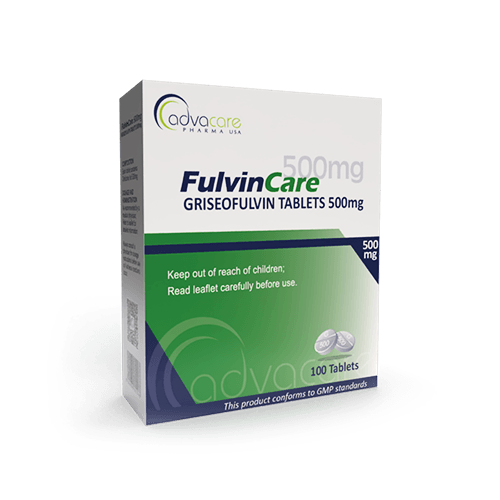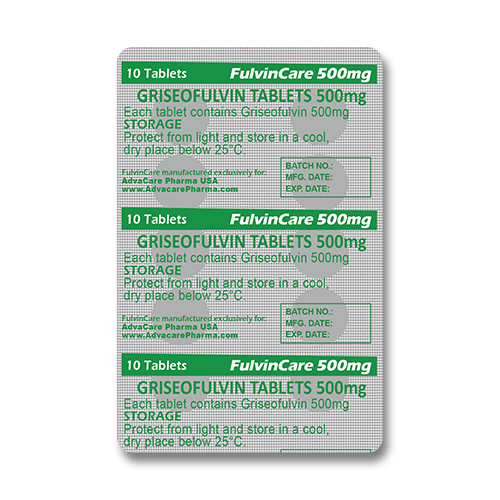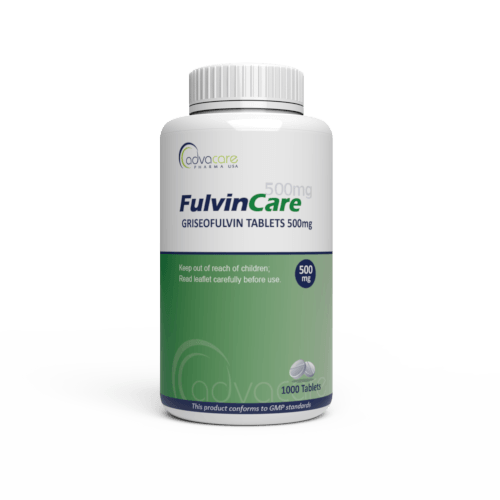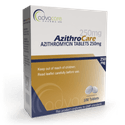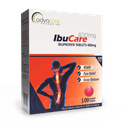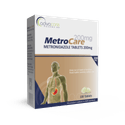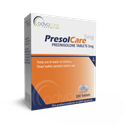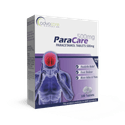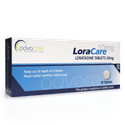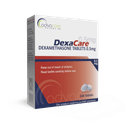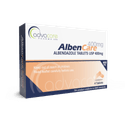- Home›
- Pharmaceuticals›
- Pharmaceutical Tablets›
- Griseofulvin Tablets
Griseofulvin Tablets
Dosage
Packaging
What is Griseofulvin?
Active Ingredients: Griseofulvin
Griseofulvin Tablets are used to treat fungal infections of the skin, scalp, fingernails, and toenails. It is effective against many types of dermatophytosis (ringworms), including ones caused by the Trichophyton or Microsporum fungi. It is typically used for infections that do not respond well to topical treatments.
Griseofulvin is an antifungal agent, which has been derived from the fungus Penicillium griseofulvum. It works by binding to tubulin, which interferes with mitosis. It also binds to keratin in keratin precursor cells, which builds fungal resistance.
Griseofulvin Tablets are produced with a dosage of 125mg, 250mg, or 500mg. These tablets are available for distribution packaged in a box containing 100 tablets or a bottle of 1000 tablets.
AdvaCare Pharma is a trusted global exporter of Griseofulvin Tablets. This medication is manufactured in our GMP-certified facilities in China, India, and the USA. Our production facilities are regularly inspected to ensure they comply with WHO's standards, rules, and regulations.
Why are we a trusted Griseofulvin manufacturer?
We are a Griseofulvin manufacturer engaged in the global distribution of 200+ oral solid pharmaceutical products in tablet dosage form.
As an American-owned and operated company, we are devoted to the manufacture and supply of superior quality, yet cost-effective pharmaceuticals to improve access to healthcare solutions worldwide. AdvaCare Pharma manufactures Griseofulvin Tablets, and over 500 other pharmaceutical treatments, according to strict GMP regulations as part of our global commitment to bring efficacious medicines to pharmaceutical distributors, hospitals, pharmacies and other medical institutions.
Uses
What is Griseofulvin used for?
It is used to treat fungal skin infections such as athlete's foot, ringworm, and jock itch, and infections of the scalp, fingernails, and toenails. It may be used alone or with topical medicines to treat these infections.
How are Griseofulvin Tablets used?
This medication is intended to be taken orally. If possible, Griseofulvin Tablets should be taken with or after eating a meal containing a high amount of fat.
What dose should be taken?
The recommended adjustments are as follows:
Adult Dosing Recommended dosage may vary based on different medical conditions:
- For dermatophytosis, the usual dose is 500-1000mg taken as a single dose or in divided doses. The duration of treatment is dependent on the type of infection and can range from 2-8 weeks. Some cases may need treatment lasting up to 4-6 months.
- For onychomycosis, the usual dose is 1000mg, divided and taken every day. For fingernail infections, treatment should continue for at least 4 months. For toenail infections, treatment should continue for at least 6 months.
- For tinea capitis, the usual dose is 500-1000mg taken as a single dose or in divided doses. The duration of treatment is 4-8 weeks. For refractory cases of tinea capitis, treatment should last 8-12 weeks.
- For tinea corporis, the usual dose is 500-1000mg taken as a single dose or in divided doses. The duration of treatment should last for 2-4 weeks.
- For tinea cruris, the usual dose is 500-1000mg taken as a single dose or in divided doses. Treatment should continue for 2-4 weeks.
- For tinea pedis, the usual dose is 1000mg per day, taken in divided doses. Treatment should continue for 4-8 weeks. It is advised to use a topical antifungal along with oral therapy.
- For tinea unguium, the usual dose is 500-1000mg taken as a single dose or in divided doses. Treatment should continue for 4-6 months.
- For tinea barbae, the usual dose is 500-1000mg taken as a single dose or in divided doses. The duration of treatment should last for 2-4 weeks.
Renal Dosing No adjustment is necessary for patients with renal impairment.
Hepatic Dosing Griseofulvin is contraindicated in patients with hepatic failure.
Pediatric Dosing Recommended dosage for children may vary based on different medical conditions:
- For dermatophytosis, the usual dose is 10-20mg/kg per day, taken in divided doses. The duration of treatment is dependent on the type of infection and can range from 2-8 weeks. Some cases may need treatment lasting up to 4-6 months.
- For onychomycosis, the usual dose is 10-20mg/kg per day, divided and taken every day. For fingernail infections, treatment should continue for at least 4 months. For toenail infections, treatment should continue for at least 6 months. The dose should not exceed 1g per day.
- For tinea pedis, the usual dose is 10-20mg/kg per day, taken in divided doses. Treatment should continue for 4-8 weeks. It is advised to use a topical antifungal along with oral therapy. The dose should not exceed 1g per day.
- For tinea cruris, the usual dose is 10-20mg/kg per day, taken in divided doses. Treatment should continue for 2-6 weeks. The dose should not exceed 1g per day.
- For tinea capitis, the usual dose is 10-20mg/kg per day, taken in divided doses. The duration of treatment is 4-8 weeks. For refractory cases of tinea capitis, treatment should last 8-12 weeks. The maximum dosage is 1g each day.
- For tinea corporis, the usual dose is 10-20mg/kg per day, taken in divided doses. The duration of treatment should last for 2-4 weeks. The maximum dosage is 1g per day.
- For tinea barbae, the usual dose is 10-20mg/kg per day, taken as a single dose or in divided doses. The duration of treatment should last for 2-4 weeks. The maximum dosage is 1g per day.
Renal Dosing Guidelines for dose adjustments for children with renal impairment have not been defined. It is advised to consider the guidelines for adults.
Hepatic Dosing Griseofulvin is contraindicated in children with hepatic failure.
The dosage is based on medical condition, response to treatment, age, and weight. Refer to a doctor or pharmacist for guidelines on dosage. Do not exceed what they advise.
Who can use Griseofulvin?
Griseofulvin Tablets can be given to adults and children, but caution is advised for specific groups of patients.
Pregnant The use of Griseofulvin is not recommended for pregnant women, and the benefits must be weighed against the risks. Conflicting human data suggests there is a possible risk of teratogenicity. Animal studies have reported teratogenicity and embryotoxicity at doses up to 27 times the recommended human dose.
Breastfeeding Griseofulvin should be used cautiously in women who are breastfeeding. There is no human data available to evaluate the risks on the nursing infant or the effects on milk production.
Males of Reproductive Potential It is recommended for males to wait 6 months after stopping treatment before they attempt conception.
Children Griseofulvin is generally well tolerated in pediatric patients. The safety and efficacy have not been established for children under 2 years old.
Geriatric There have not been adequate studies performed to assess the effects on this specific population.
How should Griseofulvin Tablets be stored?
These tablets should be kept in a dark location between 20-25ºC. Protect the tablets from direct light.
Other warnings
This medicine is contraindicated for use in patients with severe hepatic impairment, systemic lupus erythematosus (SLE), and porphyria.
It is advised to express caution when using this medicine for patients with mild to moderate hepatic impairment.
Side Effects
As with all pharmaceuticals, some unwanted effects can occur from the use of Griseofulvin Tablets.
Common side effects include, but may not be limited to:
- gastrointestinal disturbances (nausea, vomiting diarrhea, upset stomach)
- dizziness
- difficulty sleeping
- sun sensitivity
Call your doctor if the following develop:
- numbness or tingling in the hands or feet
- mood changes
- a butterfly-shaped rash on the face
- signs of kidney or liver problems
- joint pain
Seek immediate medical attention in the event of:
- signs of a severe allergic reaction
- symptoms of liver damage
For a comprehensive understanding of all potential side effects, consult a medical professional.
If any symptoms persist or worsen, or you notice any other symptoms, please call your doctor immediately.
Precautions
Do NOT use Griseofulvin Tablets if:
- You are allergic to griseofulvin or any other ingredient.
- You are hypersensitive to penicillin.
- You have porphyria.
- You have severe liver disease.
- You have lupus.
- You are pregnant or may be pregnant.
Griseofulvin interacts with and may decrease the efficacy of drugs like warfarin, hormonal birth control, cyclosporine, and salicylates. Consult with your doctor about any vitamins, supplements, or medications you are taking before treatment with griseofulvin.
This medication may not be suitable for people with certain conditions, so it is important to consult with a doctor if you have any health conditions. Special considerations or dose adjustments may be necessary for conditions such as:
- liver impairment
- children
- men in their reproductive years
- breastfeeding
This medicine may increase sensitivity to light. It is recommended to avoid sunlight and wear protective clothing and sunscreen.
Griseofulvin may cause side effects such as dizziness or drowsiness. Do not drive or operate machinery until it is clear how the medicine affects you.
It is not advised to drink alcohol while taking griseofulvin. This medication will cause increased effects, such as nausea, vomiting, flushing, tachycardia, or severe hypotension.
Griseofulvin may interfere with the results of certain types of urinary tests. It is important to inform laboratory staff if you are being treated with griseofulvin.
References
Clinical study on the antifungal activity of griseofulvin in the presence of surfactants
This study included collecting scales from 128 human volunteers with ringworm infections and culturing on Sabouraud's media to identify the causative organisms.
Four groups of 32 patients each were treated for sixty days: three groups received griseofulvin tablets combined with either dioctyl sodium sulfosuccinate, cetyl pyridinium chloride, or polysorbate 80, while the fourth group received griseofulvin tablets alone.
The conclusion of this study is that patients treated with griseofulvin tablets containing surfactants experienced a higher cure rate compared to those treated with griseofulvin alone.

You might be interested in...
Why AdvaCare Pharma?
As an industry leader, we are aware of our responsibility to provide affordable and sustainable solutions to improve healthcare worldwide.
